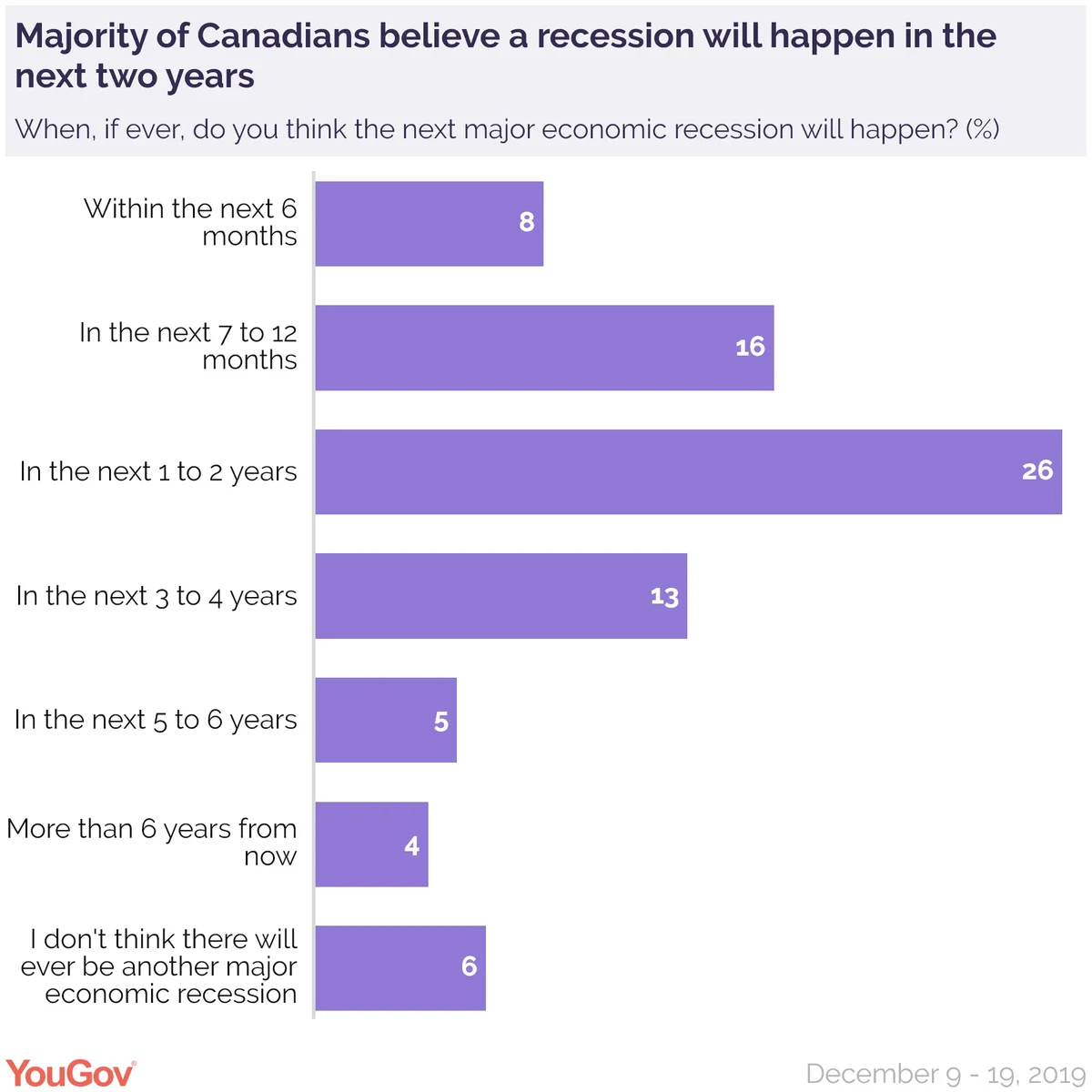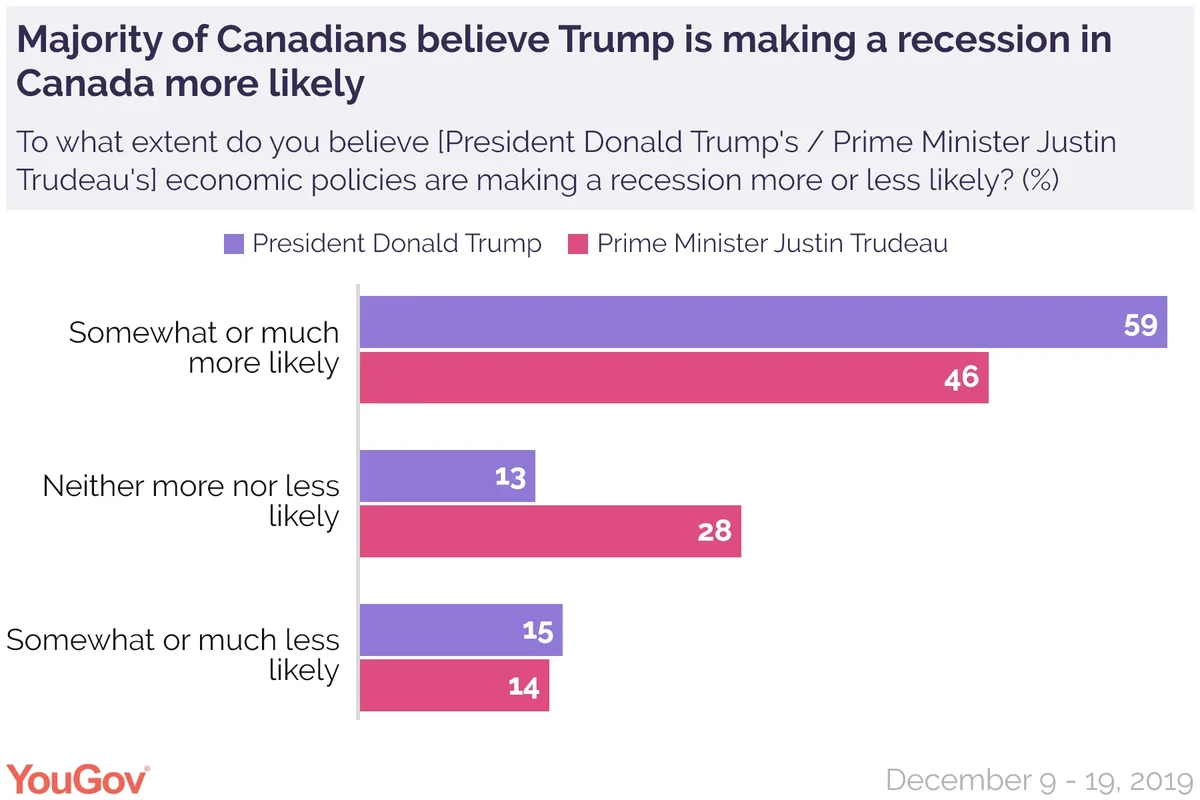Half of Canadians believe a recession will happen in the next two years — but many aren’t prepared.
According to YouGov data, nearly a quarter (24%) of Canadians think a recession will hit in the next year, and roughly another quarter (26%) believe the next major downturn will hit in the next one to two years.

YouGov will be periodically tracking recession fears in Canada as it does for the United States.
Who’s to blame?
When looking to the nation leaders, who do Canadians blame for increasing the likelihood of a recession? More than two of five (46%) of Canadians say the policies of Prime Minister Justin Trudeau have made a recession somewhat or much more likely. In light of regional tensions in Western Canada, it’s no surprise that number is higher in the prairie region (56%), which includes Alberta and Saskchewan, whose provincial economies rely heavily on resource extraction. Quebec is the least likely to believe Trudeau’s policies increase the likelihood of a recession.
Canada as a whole, however, more likely do believe President Donald Trump’s policies are making a recession more likely in Canada, with 59 percent of Canadians saying his policies are making a recession somewhat or much more likely. These figures came to light just as the US Senate approved the trade deal between Mexico, the US and Canada.

Is Canada prepared?
YouGov data shows more than half (52%) of Canadians aren’t personally prepared for when a major recession hits, while 41 percent say they are somewhat or very prepared.
More than three in five say Canada as a nation is not very prepared or not prepared at all, while just over a quarter (25%) say it is somewhat or very prepared.
In December, we asked Canadians how much influence their economic outlook would have on spending during the 2019 holiday season in various categories: Nearly half (49%) said their outlook would affect gift spending. Number were similar for travel (47%) and entertaining (48%).
Methodology: Total sample size was 1051 adults. Fieldwork was undertaken between 9th - 19th December 2019. The survey was carried out online. The figures have been weighted and are representative of all US adults (aged 18+).
Image: Getty








